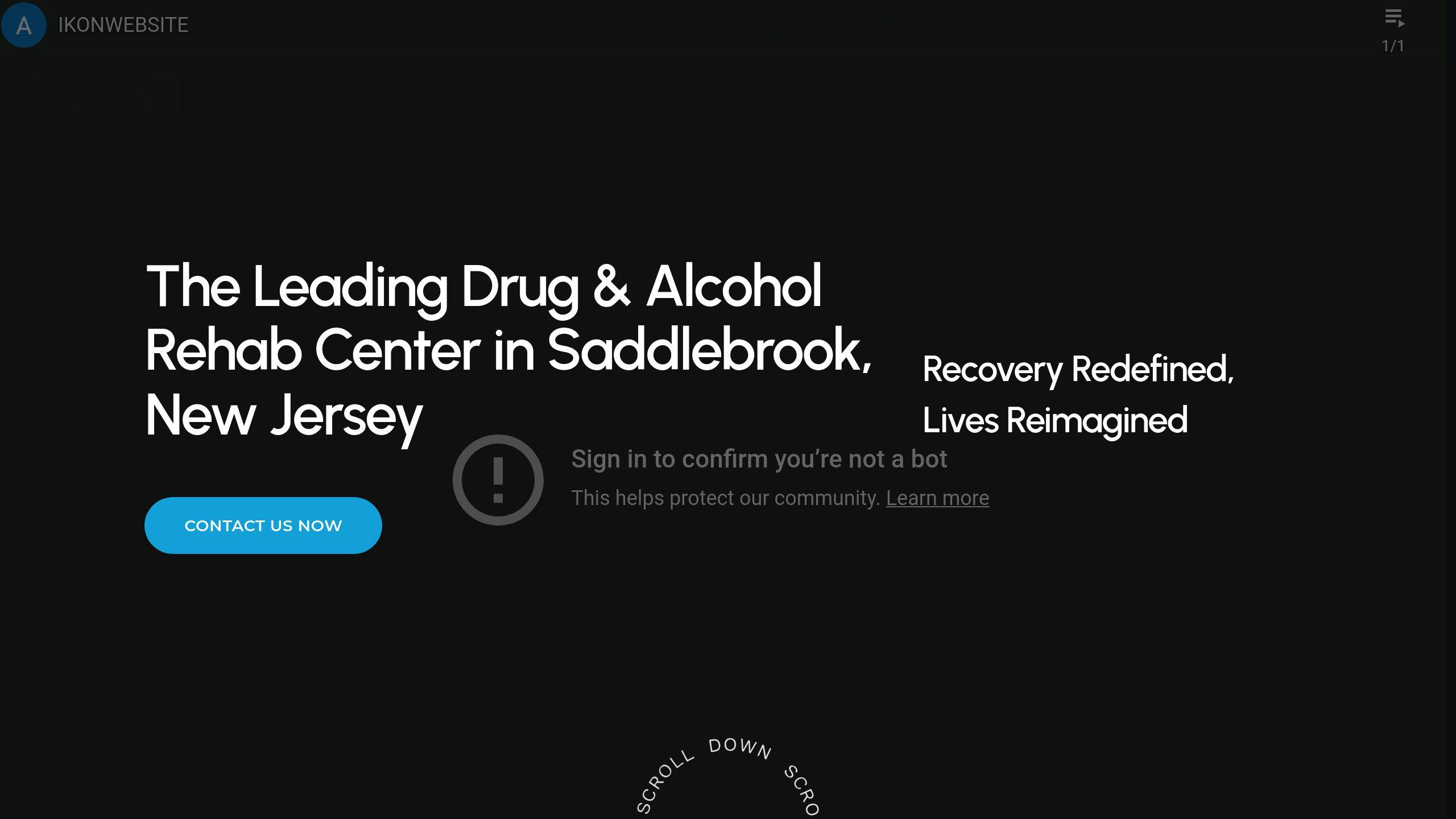Substances
7 Sleep Tips for Addiction Recovery

Medically Reviewed By
Written By
James Mikhail
Substances

Medically Reviewed By
Written By
James Mikhail
Getting quality sleep is essential for addiction recovery – it helps heal your body, balance emotions, and improve focus. Lack of sleep increases the risk of relapse, making it vital to address sleep issues early. Here are 7 actionable tips to improve your sleep during recovery:
Better sleep is a gradual process but critical for long-term recovery. If challenges persist, professional help can make a difference. Keep reading for detailed strategies to improve your sleep and support your recovery journey.
Keeping a consistent sleep schedule plays a big role in recovery. Going to bed and waking up at the same times every day – even on weekends – helps regulate your body’s internal clock and lowers the chances of relapse [3]. Studies confirm that sticking to regular sleep patterns supports long-term recovery [1].
The foundation of healthy sleep habits is simple: go to bed and wake up at the same time every day. Aim for 7-8 hours of sleep each night [3]. While sleeping in on weekends might be tempting, staying consistent strengthens your natural sleep-wake cycle.
Here’s a tip: use two alarms daily:
If your current sleep routine is off track, don’t overhaul it all at once. Instead, shift your bedtime by 15-30 minutes every few days until you hit your goal bedtime. This slow adjustment helps your body adapt without added stress [2].
It’s normal for your body to need a few days to adjust to each small change [2]. If you slip up, just return to your planned schedule the next day. For those struggling with persistent sleep issues, facilities like Ikon Recovery Center offer support through methods like cognitive behavioral therapy (CBT) to improve sleep during recovery.
Once you’ve nailed down a regular sleep routine, focus on creating a restful environment to make your sleep even better.
For anyone in addiction recovery, setting up a bedroom that promotes rest can help lower stress and support emotional balance. The way your bedroom is arranged has a big impact on the quality of sleep you get during recovery.
A peaceful and calm bedroom can make a huge difference in how well you sleep. Here are some tips to reduce disruptions:
Reserving your bed exclusively for sleeping helps train your mind to associate it with rest. Stick to these habits:
If sleep problems persist during recovery, consider reaching out for professional help. Facilities like Ikon Recovery Center include guidance on sleep-friendly habits as part of their recovery programs.
Building the perfect sleep environment takes time, but paired with a consistent sleep routine, these changes can make a big difference in your recovery journey. Up next, we’ll focus on relaxation techniques to prepare your mind and body for sleep.
Building a calming pre-sleep routine is key to getting better rest during addiction recovery. The right techniques can help slow down racing thoughts and prepare your mind and body for sleep.
Mindfulness and meditation are great tools to relax before bed. They can ease stress and quiet your mind. Start small – spend 5-10 minutes on simple breathing exercises or progressive muscle relaxation, where you tense and then release different muscle groups to let go of tension. Apps like Calm or Headspace can walk you through these practices if you’re just starting out.
"Adequate sleep during addiction recovery can help reduce stress and anxiety levels, factors that often exacerbate the struggle with substance abuse." [1]
Sticking to a consistent routine is important. Practicing these techniques at the same time every night helps signal to your body that it’s time to wind down.
Blue light from screens can interfere with melatonin production, making it harder to fall asleep [1]. Instead of scrolling or watching TV, try these alternatives:
At Ikon Recovery Center, experts work with individuals to create personalized pre-sleep routines. These strategies not only enhance sleep but also help reduce stress and anxiety, which are common relapse triggers.
Start winding down about an hour before bed with calming activities. Gradually shift to quieter, more relaxing practices as bedtime gets closer. While these relaxation methods are helpful, managing stress throughout the day is just as important for improving sleep during recovery.
Effectively managing stress is key to getting quality sleep, especially during addiction recovery. High stress levels trigger increased cortisol production, which can make falling and staying asleep a challenge. By using proven techniques to reduce stress, you can set the stage for more restful nights.
Physical activity is a powerful way to lower stress and boost sleep quality. Exercise releases endorphins, which help lift your mood and ease anxiety. Activities like walking, yoga, or swimming can be especially helpful for calming the mind and improving sleep patterns. To avoid disrupting your sleep, aim to finish any intense workouts at least 3-4 hours before bedtime.
In addition to exercise, adding stress-relief practices to your daily routine can make a big difference. Techniques like journaling can help you clear your mind before bed, while simple breathing exercises or light stretching can ease mental tension at night.
"Sleep not only enables us to rest and recharge, but it also gives our bodies time to heal, boosting the immune system and recovering from physical harms and illness." [3]
Inadequate sleep increases the likelihood of relapse [3], but stress management methods – like those offered at Ikon Recovery Center – can help improve both sleep and recovery progress. Their treatment programs blend physical activity with therapeutic strategies to address stress and support better rest.
Finding the right stress management approach may take some trial and error. Start with one method that feels manageable and gradually add others as you build confidence. Consistency is key – small, daily efforts to manage stress can lead to noticeable improvements in your sleep over time.
While stress management plays a big role in better sleep, your diet and overall lifestyle choices also contribute to achieving restorative rest.
What you eat, drink, and when you consume it can directly impact the quality of your sleep during recovery. Small tweaks to your diet and habits can make a noticeable difference.
Caffeine can stay in your system for hours, interfering with your sleep. Stick to 1-2 servings before 2 PM, and switch to decaf or herbal teas like chamomile later in the day. Keeping a simple journal can help you notice patterns and understand how caffeine affects your sleep.
Give your body enough time to digest before bed. Aim to eat your last meal 2-3 hours before sleeping, focusing on lean proteins and vegetables. Avoid heavy portions, sugary snacks, and carb-loaded meals. If you get hungry later, choose a small, protein-packed snack to keep your blood sugar steady and prevent hunger from waking you up.
Stay hydrated throughout the day, but cut back on fluids in the evening to avoid waking up during the night. Combining these dietary changes with relaxation techniques can help set the stage for better sleep.
Studies show that poor sleep during recovery can increase the risk of relapse [3]. By making these adjustments, you’re not just improving your rest – you’re also reinforcing your recovery efforts. For additional support, consider seeking professional advice to optimize your sleep during this crucial time.
Sometimes, lifestyle changes and relaxation techniques aren’t enough to fix persistent sleep problems. When that happens, turning to a professional can help uncover and address the deeper issues behind your sleep troubles.
If your sleep problems continue despite trying different strategies, a sleep specialist can offer tailored solutions. These professionals are equipped to diagnose conditions like insomnia, create treatment plans specific to your needs, and track your progress to ensure improvements.
Studies show that poor sleep during recovery can increase the risk of relapse [3]. Sleep specialists use advanced tools to pinpoint the exact causes of your sleep disturbances and recommend effective treatments to help you get back on track.

The Ikon Recovery Center uses a mix of therapies, including CBT, yoga, and music therapy, to tackle sleep challenges and ease anxiety. Their approach combines both physical and emotional care, addressing the full picture of sleep issues during recovery. Plus, their aftercare services are designed to help you maintain good sleep habits over the long haul.
Seeking professional help is not a weakness – it’s a smart move to support your recovery. Many sleep problems during recovery are temporary and can be managed with the right guidance.
Consider reaching out for help if you:
Improving your sleep takes time, and occasional setbacks are completely normal. The key is to stay patient and stick with your efforts to build better sleep habits during recovery.
Using a sleep journal can help you figure out what works and what doesn’t. Record details like your bedtime, wake-up time, sleep quality, daily habits (such as caffeine use or exercise), and mood. Reviewing these notes weekly can reveal patterns, help you adjust your routine, and provide useful insights for your healthcare provider [2].
Your sleep needs may change as you recover. Be open to adjusting your approach based on:
If something isn’t working, don’t hesitate to reach out to your healthcare provider for advice. Give new strategies at least 30 days before making any major changes to your routine. This gives you enough time to spot trends and decide what adjustments might be necessary [2].
Getting enough quality sleep helps lower stress, balance emotions, and improve brain function – all crucial for addiction recovery [1][3]. Sleep problems can increase the risk of relapse, making it important to address them during the recovery process [3]. The tips in this guide, like sticking to a regular sleep schedule and creating a better sleep environment, can work together to support your body’s recovery.
Sometimes, tackling sleep issues on your own may not be enough. In such cases, seeking professional help – like the services offered by Ikon Recovery Center – can make a real difference. Building consistent sleep habits can enhance your recovery efforts.
Better sleep can be tough to achieve, but it’s worth it. It can lift your mood, lower anxiety, and improve focus [1][2]. The benefits far outweigh the challenges of forming and keeping healthy sleep routines.
"Research suggests that individuals recovering from addiction who struggle with getting a good night’s sleep are more at risk of relapse" [3].
Start by trying the strategies in this guide. If sleep issues persist, don’t hesitate to reach out for professional help. With patience, determination, and the right support, you can build sleep habits that will benefit you throughout your recovery and beyond.
Understanding common sleep-related issues during recovery can help you navigate your journey to better rest with more confidence.
Yes, sleep problems are very common among recovering alcoholics. Research shows that people in early recovery experience insomnia at a rate five times higher than the general population [1][2]. Alcohol and other substances interfere with natural sleep patterns, making it hard for the brain to rebuild healthy sleep cycles during recovery [3].
Struggling with sleep is normal after quitting drugs due to disruptions in your sleep cycles. Here are a few strategies that can help:
Creating a calming sleep environment and managing stress are key to restoring healthy sleep patterns. Pairing these practices with professional help, if needed, can support you in building lasting, restorative sleep habits during recovery.